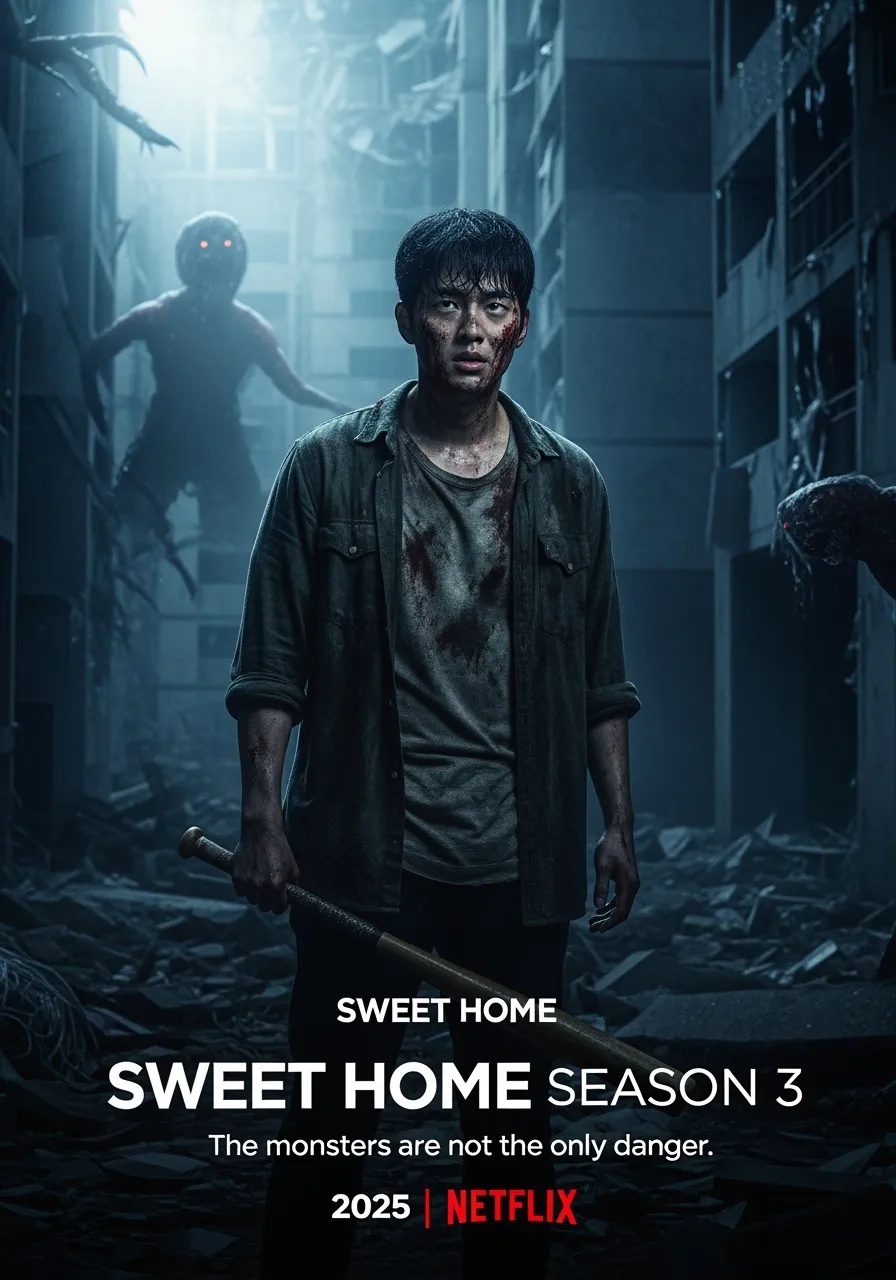I. PLOT OVERVIEW
In the dark labyrinth of crime, some truths are buried deeper than others. Hunter with a Scalpel (2025) follows the intense journey of Seo Se-hyeon (Park Ju-hyun), a brilliant and emotionally scarred forensic pathologist, who finds herself investigating an unsettling series of murders that seem inexplicably linked to her own past. While performing a routine autopsy on one of the victims, Se-hyeon stumbles upon a chilling clue: the identity of the killer leads her back to a name she has long feared—her father, Yoon Jo-gyun (Park Yong-woo), a notorious serial killer who has evaded justice for years.
As Se-hyeon confronts the possibility that her father’s dark legacy might still haunt her, she is drawn deeper into a web of mystery, deception, and personal trauma. With the help of Jung Jung-hyun (Kang Hoon), the determined head of the violent crimes unit, Se-hyeon embarks on a race against time to uncover the truth. The investigation takes her down a path of moral conflict, where every revelation forces her to question not just her father’s guilt, but her own capacity for justice.
In a world of crime and corruption, can the line between family loyalty and law ever truly be drawn?
II. THEMES & EMOTIONAL DEPTH
Hunter with a Scalpel operates on the premise that justice is not always black and white, but shades of gray where family and duty collide. The series explores complex psychological terrain—specifically, the impact of familial legacy and the question of nature versus nurture. Se-hyeon’s personal journey is fraught with deep emotional scars from her past, and as she gets closer to unmasking the killer, she is forced to confront her darkest fears: the potential truth about her own bloodline and what it means for her future.
The show also grapples with the moral complexities of justice. Se-hyeon’s professional identity as a forensic expert forces her to separate emotion from evidence. Yet, as the investigation unfolds, her emotional attachment to the case becomes impossible to sever. The series explores the weight of moral compromise—how far is one willing to go to seek revenge, to avenge a loved one, or to preserve a family’s honor?
On a broader scale, Hunter with a Scalpel delves into corruption within the justice system, where personal vendettas and institutional corruption often cloud the truth. In a world where the law doesn’t always prevail, can one truly trust their own judgment?
III. CHARACTER DEVELOPMENT AND PERFORMANCES
The heart of Hunter with a Scalpel is its emotionally complex characters, each of whom is pushed to their breaking point.

Park Ju-hyun shines as Se-hyeon, portraying the character’s internal battle with stunning restraint and nuance. As a forensic expert, Se-hyeon embodies both scientific precision and emotional fragility. Her journey from an intellectual investigator to someone personally ensnared in the case is a masterclass in performance.
Park Yong-woo, as Se-hyeon’s estranged father, Yoon Jo-gyun, is haunting in his portrayal of the chilling serial killer. He isn’t a villain in the traditional sense—his calm and collected demeanor adds layers of psychological complexity to the role. His mere presence in Se-hyeon’s life raises unnerving questions about the inheritance of evil, and the guilt she must carry for being his daughter.
Kang Hoon brings strength and empathy to his role as Jung Jung-hyun, the detective who stands by Se-hyeon. As he helps her navigate the twisted path of family secrets and crime, his own journey becomes intertwined with hers, creating a poignant dynamic between the two characters. His moral compass is tested in ways that mirror Se-hyeon’s internal conflict, and his transformation throughout the series serves as an emotional anchor.

Together, these performances elevate the narrative, making the suspenseful mystery deeply personal and psychologically intense.
IV. CINEMATOGRAPHY AND DIRECTION
Director Lee Jung-hoon creates an immersive and intense visual experience, balancing dark, atmospheric cinematography with sharp, clinical moments of forensics. The show uses its setting—the sterile, cold laboratories, shadowy alleys, and stark interrogation rooms—almost as characters themselves. The confined spaces and use of shadow add an element of claustrophobia, mirroring the emotional and mental constraints the characters face.

The sound design plays a key role in amplifying the tension, using subtle cues like the faint hum of machinery or distant voices to punctuate key moments. The series relies on an unnerving silence during the most suspenseful scenes, allowing the fear to settle in slowly, heightening the dread.
V. FINAL VERDICT
Hunter with a Scalpel is an emotionally gripping psychological crime thriller that delves deep into the human psyche, exploring themes of guilt, justice, and the inescapable pull of one’s past. It transcends the typical crime procedural, offering a layered narrative that asks not only who committed the crime, but why—and whether seeking justice is ever as simple as right versus wrong.

The performances, direction, and underlying tension make Hunter with a Scalpel a standout in its genre, with a gripping narrative that will leave viewers questioning the morality of their own choices long after the final episode.
Rating: 8.5/10
A dark, compelling, and psychologically charged thriller that will keep you hooked until the very end.
-1750650815-q80.webp)

-1740282288-q80.webp)

-1748427036-q80.webp)